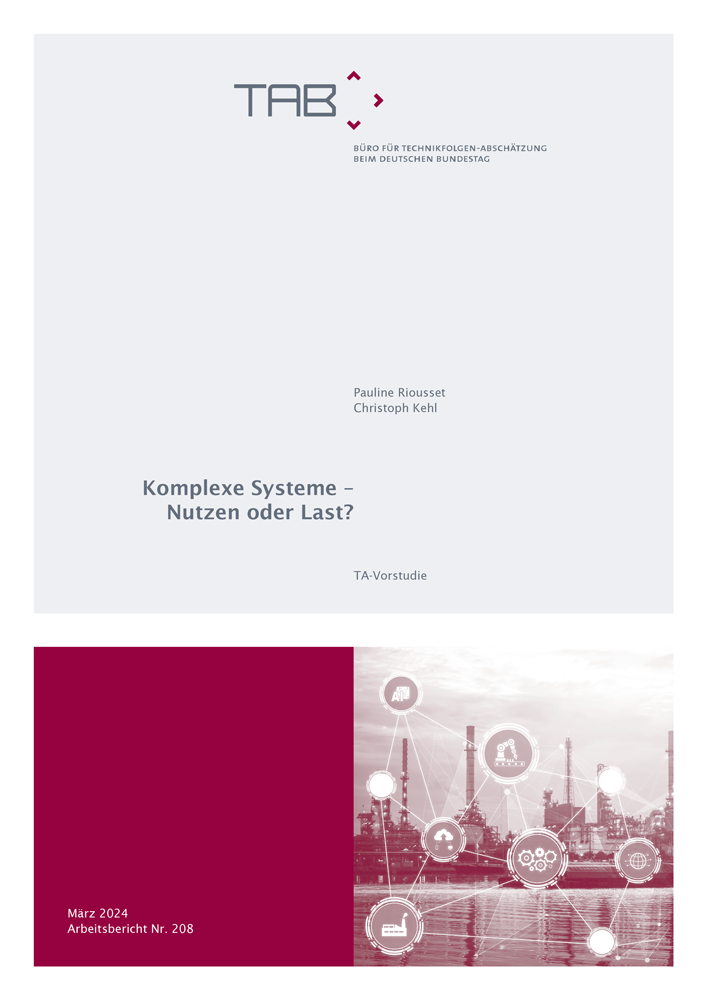Complex systems – benefit or burden?
Complex systems are the backbone of modern industrial societies. They include energy, communications, logistics, manufacturing and early warning systems. The functioning of such systems depends on the interaction of different types of elements and is therefore potentially prone to failure. The many interactions and feedback loops make it difficult to predict the behaviour of such a system. Even small perturbations can lead to far-reaching, possibly undesirable changes in the system state. The degree of interconnectedness and complexity of critical infrastructures has increased in recent years as a result of increasing digitalisation and is expected to increase further in the future.
This raises the question of how increasing complexity affects the vulnerability and resilience of infrastructures. The aim of the study commissioned by the Committee for Education, Research and Technology Assessment was to identify systems and subsystems that have reached a level of complexity at which, in the event of disruption or failure, a threat to society can be assumed and for which an in-depth investigation as a TA project seems appropriate.
The preliminary study now published explains why the energy system is particularly suitable for this purpose. It also identifies topics that lend themselves to in-depth investigation. These include the analysis of systemic risks from solar storms, the use of artificial intelligence, the dependence on raw materials and suppliers that can result from an increasingly complex energy system, and ensuring the functionality of critical energy infrastructure under changing climatic conditions.
26.03.2024
Download and further information
- TAB-Arbeitsbericht Nr. 208 (only in German)
Komplexe Systeme – Nutzen oder Last? TA-Vorstudie (PDF)
doi:10.5445/IR/1000169590 - Project page

